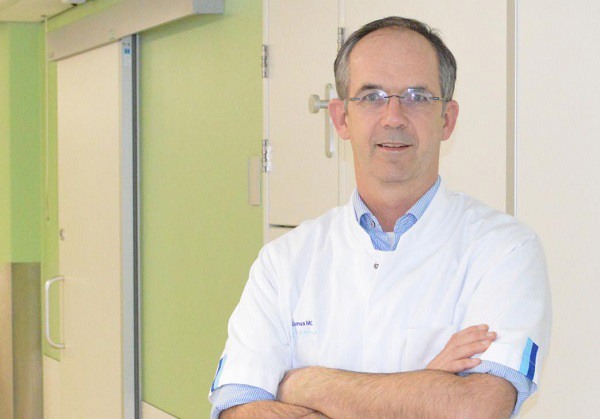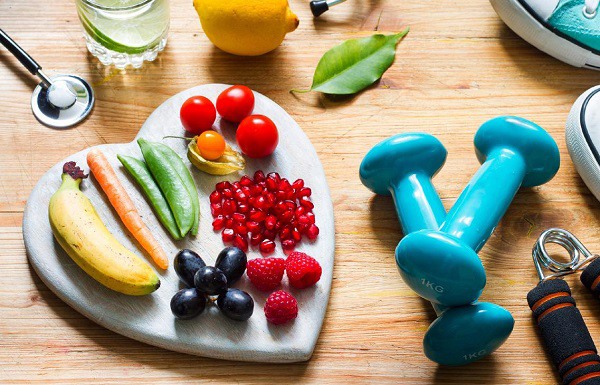How can people better protect themselves from COVID-19's effects? "The virus is so contagious that your immune system isn't enough on its own. That's why people need to get vaccinated. But if you get sick, it's vital that you have resistance; then you have a high chance of recovery," says Prof. Koen Joosten of Erasmus MC in Rotterdam, the Netherlands. To strengthen our resilience, we need to focus on two things, says the pediatrician: exercise and healthy eating.

Healthy appetite
"Exercise and healthy eating go hand in hand. When you exercise, you develop a healthy appetite. After exercising, you're more likely to eat something that suits your active lifestyle: a healthy snack instead of an unhealthy one." That is why Dr. Joosten is disappointed in the Dutch government. It is now showing little interest in either of these factors, even though they are the basis of a healthy lifestyle.
It was recently decided to pull the plug on the National Fruit and Vegetable Action Plan (NAGF). "It's been two years of this global pandemic. And I have to wonder why we're not working together to somehow get the Netherlands healthier? We're stuck with measures that are supposed to deliver immediate results, while hardly anything is being done for the long term," remarks Dr. Joosten.
Destroying resources
"The NAGF's ironhanded closure could easily be classified as the destruction of resources. After all, the NAGF campaigns continuously kept highlighting the importance of healthy eating. These included the National Vegetable and Fruit Day and supermarket and bus shelter campaigns. The NAGF also very creatively displayed fruit and vegetables on the Veggipedia website."

"The government is now leaving the fruit and vegetable sector to its own again. While, in my opinion, the topic is of incredible social importance," Dr. Joosten continues. And then, he is not even referring to how much health care costs the treasury department. It is simply about people's physical and mental health. "People who eat more fruits and vegetables feel fitter."
"Their bodies function better and become stronger. All that contributes to improved well-being. The NAGF kept its finger on the pulse, gathering news and raising awareness. For that, it relied on a steering committee and people who were willing to step up. They were doing so well and becoming increasingly better-known in the Netherlands. Now, everything is being thrown to the wayside."
What does a healthy lifestyle hinge on?
The doctor believes people must move toward what he calls a new health standard. "How do we ensure that sickly people develop a new norm? And that people can live healthier, improved lives again? I think fruits and vegetables play a pivotal role in this. A healthy lifestyle hinges on vegetables. Perhaps the whole retail sector should be upended. Because, currently, most store products are unhealthy."
"What if we used advertising and awareness-raising campaigns to emphasize healthy products instead of, say, soft drinks? Also, the government could remove VAT from healthy products, thus making them cheaper. And taxing unhealthy products with things like a sugar tax. The country will then see both short and long-term benefits. People will eat fewer unhealthy products. And there'll be tax money for starting and boosting health campaigns," explains Dr. Joosten.
"But we shouldn't head toward prohibition; we should try to encourage the positive. Anyone convinced of fruit and vegetables' importance will eat less meat anyway. Because besides soft drinks, too much meat is also unhealthy." Meat consumption must also begin declining in the context of reducing CO2 emissions and saving the environment.
Awareness is key
Raising awareness is key to Dr. Joosten's vision. Here, he is thinking of large campaigns to promote healthy products. These include sharing information about how much you should eat and how you can prepare healthy meals. These can be national or local, and can target the entire society or certain groups of people.
Children, youngs, the elderly, but also pregnant or nursing people, for example, must be included. "It's essential to include everyone. Because each stage of life has different needs. And 'what is learned in the cradle is carried to the grave’. So let's definitely not forget the youngest among us," concludes the pediatrician.
Koen Joosten
k.joosten@erasmusmc.nl
